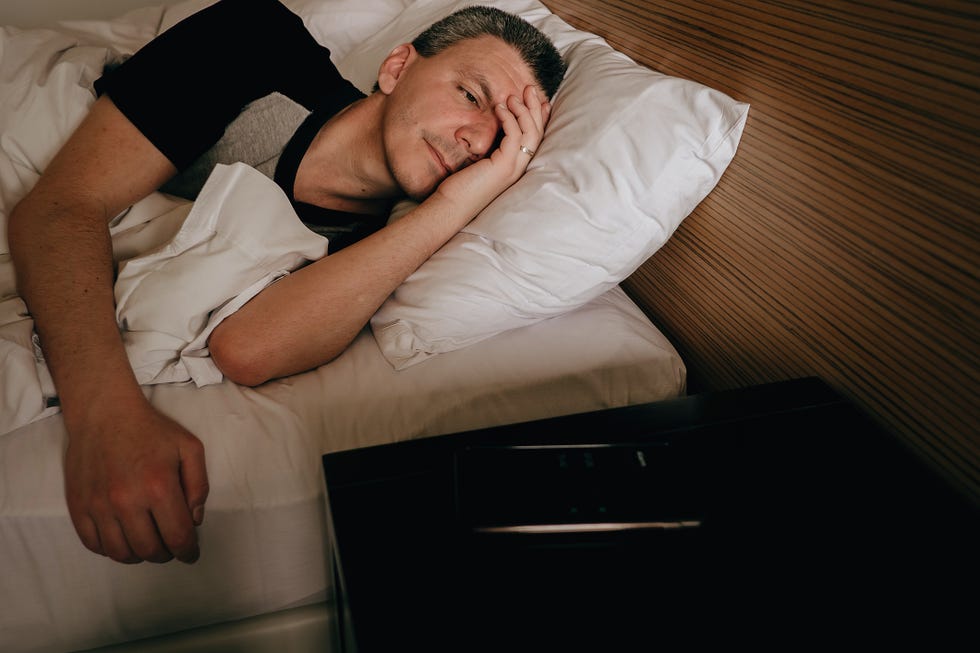Sleep Improvement Therapy - Enhance Your Sleep High Quality
Sleep Improvement Therapy - Enhance Your Sleep High Quality
Blog Article
Efficient Therapy Solutions for Managing Rest Disorders and Enhancing Peaceful Sleep
In the world of healthcare, the management of rest disorders and the pursuit for peaceful sleep are crucial components of total wellness. Effective treatment services offer a diverse method to tackle these challenges, ranging from cognitive behavioral treatments to holistic techniques that promote leisure and mindfulness. The exploration of numerous techniques, consisting of the combination of medication and light treatment, opens up a world of possibilities in the pursuit of far better sleep quality. As we browse the detailed landscape of sleep disorders and look for to boost our sleep experience, a deeper understanding of these treatment services may hold the key to unlocking a more refreshing and fulfilling corrective trip.
Cognitive Behavior Modification for Sleeping Disorders (CBT-I)
Cognitive Behavior Treatment for Sleep Problems (CBT-I) is a structured, evidence-based treatment strategy that concentrates on attending to the hidden factors adding to rest disruptions. This kind of therapy aims to modify behaviors and thoughts that worsen sleeplessness, eventually promoting healthy rest patterns. CBT-I generally involves several vital parts, including cognitive therapy, rest restriction, stimulus control, and rest hygiene education and learning.
Cognitive treatment assists people recognize and transform unfavorable thought patterns and beliefs concerning sleep that may be impeding their capacity to fall or stay asleep. Sleep restriction involves limiting the quantity of time spent in bed to match the individual's real rest period, therefore raising rest performance (insomnia solutions). Stimulation control methods help develop a solid association between the bed and rest by motivating individuals to head to bed just when sleepy and to avoid taking part in boosting activities in bed
Furthermore, rest hygiene education and learning concentrates on developing healthy and balanced sleep behaviors, such as preserving a consistent rest schedule, developing a relaxing bedtime regimen, and optimizing the rest atmosphere. By dealing with these variables thoroughly, CBT-I offers a reliable non-pharmacological treatment for handling sleeping disorders and improving overall rest top quality.
Sleep Hygiene Practices
Having actually established the structure of cognitive restructuring and behavior modifications in resolving insomnia with Cognitive Behavioral Treatment for Sleep Problems (CBT-I), the emphasis now changes towards discovering vital Rest Hygiene Practices for keeping ideal sleep high quality and total wellness.
Rest health techniques encompass a variety of behaviors and environmental elements that can dramatically impact one's capability to go to sleep and remain asleep throughout the night. Constant rest and wake times, producing a relaxing going to bed routine, and enhancing the sleep setting by keeping it dark, silent, and cool are vital elements of excellent rest health. Limiting exposure to screens prior to going to bed, avoiding stimulants like high levels of caffeine near going to bed, and taking part in regular exercise throughout the day can also advertise far better sleep quality.
In addition, practicing relaxation techniques such as deep breathing workouts or reflection before bed can help calm the mind and prepare the body for sleep. By integrating these sleep hygiene practices right into one's daily regimen, people can establish a healthy and balanced rest pattern that sustains restful sleep and general wellness.
Relaxation Techniques and Mindfulness
Implementing relaxation methods and mindfulness techniques can play an essential function in fostering a feeling of calmness and advertising high quality sleep. Additionally, guided images can help transfer individuals to a tranquil location in their minds, assisting in tension reduction and improving sleep top quality.
By incorporating these methods right into a going to bed routine, people can indicate to their bodies that it is time to prepare and unwind for rest. Generally, incorporating relaxation methods and mindfulness methods can considerably add to handling sleep problems and boosting overall rest top quality.

Medication Options for Rest Disorders
After exploring leisure strategies and mindfulness methods as non-pharmacological treatments for enhancing rest top quality, it is vital to consider medication options for people with sleep disorders. In situations where way of living adjustments and therapy do not give sufficient alleviation, medicine can be a valuable tool in managing rest disruptions.
Commonly prescribed medications for sleep disorders consist of benzodiazepines, non-benzodiazepine hypnotics, antidepressants, and melatonin receptor agonists. Benzodiazepines, such as diazepam, are sedatives that can aid induce sleep, however they are typically advised for short-term usage due to the risk of dependence. Non-benzodiazepine hypnotics like zolpidem are also used to deal with insomnia and have a reduced threat More about the author of dependancy contrasted to benzodiazepines. Antidepressants, such as trazodone, can be beneficial for individuals with co-occurring clinical depression and rest disruptions. Melatonin receptor agonists, like ramelteon, target the body's all-natural sleep-wake cycle and can be handy for Recommended Reading regulating rest patterns.
It is crucial for individuals to speak with a medical care company to determine the most suitable drug choice based on their details rest disorder and case history.
Light Treatment for Circadian Rhythm Law
Light therapy, additionally referred to as photo-therapy, is a non-invasive therapy method utilized to manage body clocks and improve sleep-wake cycles. This treatment entails direct exposure to intense light that mimics all-natural sunshine, which helps to reset the body's internal clock. By revealing people to details wavelengths of light, usually in the early morning or night depending on the desired result, light treatment can effectively change the circadian rhythm to advertise wakefulness throughout the day and improve relaxing sleep in the evening.
Research has actually revealed that light treatment can be especially helpful for individuals with body clock problems, such as delayed rest stage syndrome or jet lag. It can likewise be useful for those experiencing seasonal affective condition (SAD), a type of clinical depression that usually happens during the winter season when all-natural light direct exposure is decreased. Light treatment is generally well-tolerated and can be utilized together with various other therapy methods for rest conditions to optimize results and improve total rest top quality.
Verdict
In conclusion, reliable therapy options for managing rest problems and improving peaceful sleep consist of Cognitive Behavior modification for Insomnia (CBT-I), sleep health practices, leisure techniques and mindfulness, medication options, and light therapy for body clock law. These techniques can help individuals improve their rest high quality and total wellness. It is essential to seek advice from with a doctor to establish the most ideal approach for addressing do antibiotics cause insomnia sleep issues.
As we browse the intricate landscape of sleep conditions and seek to improve our sleep experience, a much deeper understanding of these treatment remedies may hold the trick to opening a much more refreshing and meeting restorative journey.
Rest limitation includes limiting the quantity of time spent in bed to match the individual's real rest duration, thereby enhancing rest efficiency. Constant rest and wake times, creating a relaxing bedtime routine, and enhancing the sleep atmosphere by maintaining it dark, peaceful, and cool are essential components of excellent sleep hygiene. Light treatment is generally well-tolerated and can be made use of in conjunction with various other therapy techniques for rest problems to enhance end results and improve general rest high quality.

Report this page